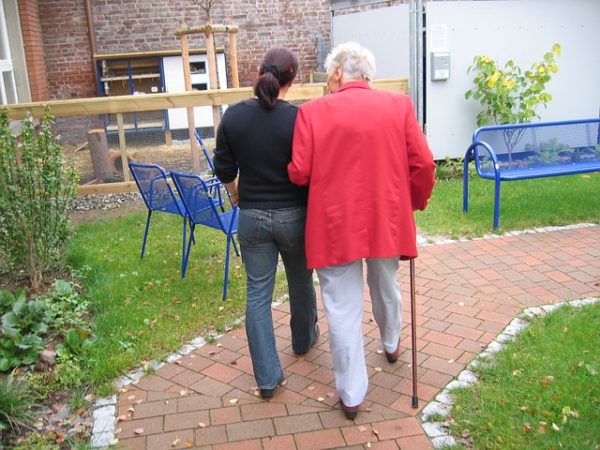Aging Life Care Professionals: Partnering with the Care Provider
Aging Life Care Professionals (ALCP) are routinely thrust into the role of caregiver to client families as well as to the clients themselves. In addition to providing care management to the client, the ALCP often supports the care providers and client families as we monitor, evaluate, assess and direct through the duration of the caregiving cycle. Active self-assessment to recognize and empower the care provider is critical to their success, but more importantly, the care provider’s ability to maintain the role of caregiver over time. Care partners take on a variety of roles as stewards of physical, social and emotional care, financial, legal and medical management. There is a wide range of resources available to ALCP’s as advisors to our client communities that are specifically designed to support care partners.
It is frequently the caregiver who reaches out to the ALCP initially imploring “I can’t handle it anymore.” Caregiver burnout is common as caregiving places great demands on a care partner and if not appropriately recognized and supported, will impact their health and well-being. Research reported in 2015 by the National Alliance for Caregiving and AARP reports that family caregivers provide unpaid care for at least 21 hours per week, and nearly half of them report high emotional stress. Caregiving is also physically stressful, and often, not surprisingly, 55% of caregivers in the US are over 50 years themselves. The over 55 caregiver is often the ALCP client, thus acknowledging the physiology of long-term stress, and ways to combat the ill effects is where the ALCP can positively impact the path of the caregiver.
The two most important questions that a care provider must address are: what are the expectations I have for myself as the care partner, and what is realistic for me to provide? The Aging Life Care Professional can play a key role in counseling the care partner during times of transition whether they are functional or psychological in nature. Caregivers need to be vigilant and self-aware, accepting their own limitations. As the needs of the care recipient change over time, so too must the expectations of the caregiver. With appropriate support, the impact of long-term stress can be tempered by the way one responds to the stressors.
Caregiver needs vary widely as each individual is different. What nourishes the strength of one may be of little help to another. Understanding the range of resources is the strength of the ALCP. Consider the following sources of strength, and how they may fit with the needs of our clients.
Traditional Support Communities
- Counseling and support utilizing individual and group arenas
- Health and Wellness communities
- Therapeutic healing alternatives including traditional and non-traditional
- Telephonic support for the homebound caregiver
- Respite for the care partner and the care recipient
- Caregiver support groups
- Books that address spiritual needs and practical guidance
- Community-based classes and lectures
Virtual Communities
- Disease-specific virtual communities (www.patientslikeme.com)
- National Associations supporting specific diseases: ALS Association, Alzheimer’s Association, and The Association for Frontotemporal Dementia, for example (https://www.theaftd.org)
- Well Spouse
- Family Caregiver Alliance/National Caregiver Alliance
- AARP
Technology & Innovations
- Communicate needs and updates via newsletter powered through email and secure website resources providing current updates & needs
- Assign roles and responsibilities to out of town family or friends
- Include financial, legal, appointment scheduling
- Create a to-do list that others can help with both locally and remotely
- Engage delivery services when available for groceries, medications
- Seek technological advances to aid caregiving when appropriate; electronic medication dispensers, GPS enabled PERS systems.
Care provider needs vary as widely as we do as individuals. What nourishes the strength of one may be of little help to another. As caregiving evolves and care needs change, the ALCA professional is positioned to be a valued partner able to recognize and work with care partners to acknowledge those needs.
This article was originally posted on 14 November 2015, and updated on 15 July 2018.
![Mid-Atlantic ALCA [logo]](https://www.midatlanticalca.org/wp-content/uploads/sites/286/2018/09/logo2.png)
